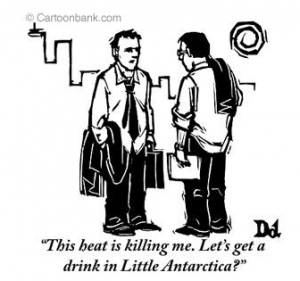I had an interesting discussion with my architecture professor, James Butler, who introduced me to the source of New York’s horrible infrastructure in low income areas. Robert Moses, who is seen as a savior to residents of Westchester County, Rockland County and Long Island, pushed for the construction of major freeways throughout NYC. One of his projects, the Cross-Bronx Expressway, abruptly cut through the South Bronx, demolishing countless apartments and displacing over 600,000 working class people on a month’s notice. Since Moses was well-connected with the upper-class and was also backed up by Master’s from Oxford and a fancy PH.D from Columbia, he neglected the voice of the neighborhoods he destroyed and just let business dominate. My professor states “Moses was so politically powerful, that all he needed was to find the most talented architectures, and manipulate them to fullfil his projects.”
Another point about Moses is that his environmental projects, i.e Riverside Park, East River Park and Central Park were reserved for areas where mostly the upper-class lived. Although willing to destroy and increase car pollution in countless neighborhoods for highways, he never decided to place a pool or a park in Hunts Point or Bed-Stuy.
Also,
I also found an interesting interview with Majora Carter. Addressing the same tensions, Carter states the reasons why environmental concerns in low income areas are inevitable. Her point express how corps can still profit by engaging in projects that equalize environmental sustainability in all neighborhoods.
Check it out. It was intriguing to listen to, and they typed-up the interview if you just want to read through the ideas.
Edit 11/16/10 : Her interview basically reiterates the points in Cooper’s essay which we read today. Thanks Cooper for introducing us to Majora Carter’s ideas.
For those of you driving back home for Thanksgiving, think about the cities/towns you pass by. Is it evident that infrastructure has cut through low income areas near you? Please share.
http://www.democracynow.org/2010/7/22/neither_the_destruction_of_the_9th – link to Carter interview.
http://en.wikipedia.org/wiki/Robert_Moses
http://gothamist.com/2007/01/25/caro_gets_snubb.php
Pic of the Cross Manhattan Expressway Moses designed.
“There is nothing more frightful than ignorance in action.” – Johann Wolfgang
Best,
Frederic

